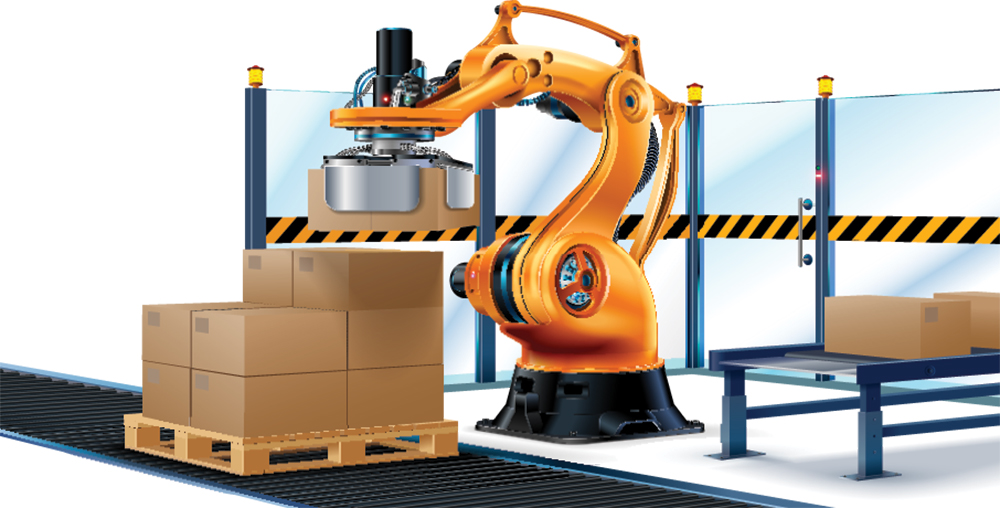Feature
Eco-friendly trends in palletising and end-of-line packaging
Eco-friendly palletising and packaging trends are transforming packaging's future, providing companies with cost-effective, environmentally friendly solutions.

Palletising, the essential step in packaging, involves stacking products on pallets for shipping. Credit: Andrey Suslov via Shutterstock
The packaging industry is evolving to meet the demands of an environmentally conscious world. Eco-friendly palletising and end-of-line packaging are at the forefront of this transformation, offering companies the opportunity to reduce their environmental impact, save costs, and gain a competitive edge.
By embracing these trends, businesses can be part of the solution to global sustainability challenges while reaping the benefits of a greener and more profitable future.
Eco-friendly palletising: a sustainable foundation
Palletising, the process of stacking and arranging products onto pallets for shipping, is a fundamental step in the packaging industry.
Traditional palletising methods often involve excess materials like shrink wrap or plastic strapping, which contribute to plastic waste and environmental harm.
However, eco-friendly palletising is changing the game.
- Automation for efficiency: Automated palletising systems are becoming more popular as they optimise product placement, reducing wasted space and materials. These systems also use advanced algorithms to minimise pallet overhang, leading to fewer pallets needed for shipping.
- Sustainable pallet materials: Companies are now opting for pallets made from sustainable materials like recycled plastic or even bamboo. These alternatives are not only durable but also reduce the carbon footprint of the packaging process.
- Strapping reimagined: Traditional plastic strapping is being replaced with innovative alternatives like paper bands and reusable straps. These solutions secure palletised goods without contributing to plastic waste.
By adopting eco-friendly palletising methods, companies can significantly reduce their environmental impact and promote sustainability throughout the supply chain.
Why do these trends matter?
Sustainable palletising and end-of-line packaging trends are not just a passing fad; they are essential for several reasons.
- Environmental responsibility: As concerns about climate change and plastic pollution grow, consumers are favouring products from companies that prioritise sustainability. Adopting eco-friendly packaging practices helps businesses demonstrate their commitment to environmental responsibility.
- Cost savings: Sustainable packaging solutions often lead to cost savings in the long run. Automated palletising systems optimise space, reducing shipping costs, while energy-efficient equipment lowers operational expenses.
- Regulatory compliance: Governments and regulatory bodies are increasingly imposing stricter environmental regulations. By proactively adopting sustainable packaging practices, companies can avoid potential fines and penalties.
- Market competitiveness: Businesses that embrace sustainability are more likely to attract and retain customers. In a competitive market, being eco-friendly can set you apart from the competition.
- Future-proofing: Sustainable practices are not just about the present; they are about securing a sustainable future. By adopting these trends now, businesses can future-proof their operations and contribute to a greener planet.